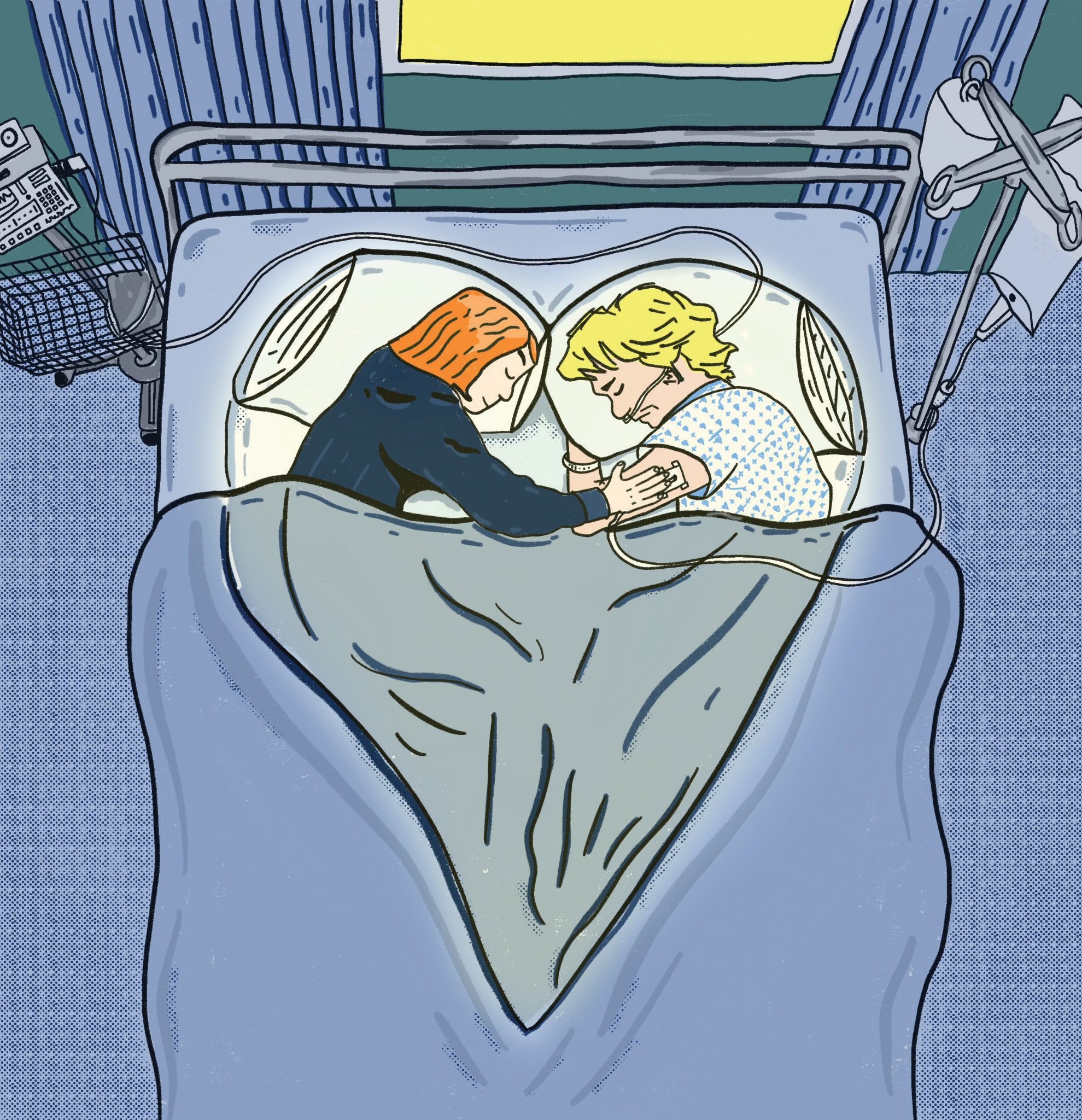For several minutes, I believed my husband would die in my arms, the two of us alone in an underground parkade. We were walking toward our car when I heard the clatter of Paul’s cell phone and the thump of his head on the concrete. I pressed my ear to his chest for a heartbeat.
“Open your eyes, honey, please open your eyes,” I pleaded. He moaned and came to moments before the ambulance arrived. “My head hurts,” he said.
The thought of leaving him alone in the Misericordia Community Hospital felt wrong. I begged the charge nurse to let me stay in Paul’s room and promised to stay out of their way.
After twisting inside my parka on a hard chair for several nights, a nurse dragged a recliner from the visitor’s lounge into his room. She covered me with a blanket as if I were one of her patients. When she slipped a pillow under my head, my lips trembled with gratitude.
Paul’s care never halted. His daily routine began with a 6 a.m. stomach needle and then a blood draw; a morning checkup; one of three cardiologists suggesting possible causes for his collapse (early blood work suggested a heart problem); an evening checkup; a second stomach needle.
On day four, EMTs took him by ambulance to the University of Alberta Hospital for an angiogram. Luckily, no artery blockage. On day five, a scan to rule out a brain bleed after hitting his head and an echocardiogram to check his heart.
Finally, an answer on day seven: a ventilation/perfusion scan found clots in his lungs. Paul had no reason to be in the cardiac intensive care unit after all, but we were grateful for the medical team that looked after us both.
“What compassionate people,” he said.
“Who?” I asked.
“Everyone who works in this hospital.”
It was true. Before Paul was even back from his angiogram, one grinning nurse raced into his room to give me the “all clear” news. Another encouraged me to climb into Paul’s bed to cuddle him while he slept. And I’ll never forget the nurse who was showing us pictures of her beehives, promising to bring us a sample of her honey, when a Code Blue sounded with its chorus of running feet. The next time we saw her, her eyes were filled with tears — she was shaken by the loss of a patient three rooms away. And yet, she remembered to bring us honey the next day.
